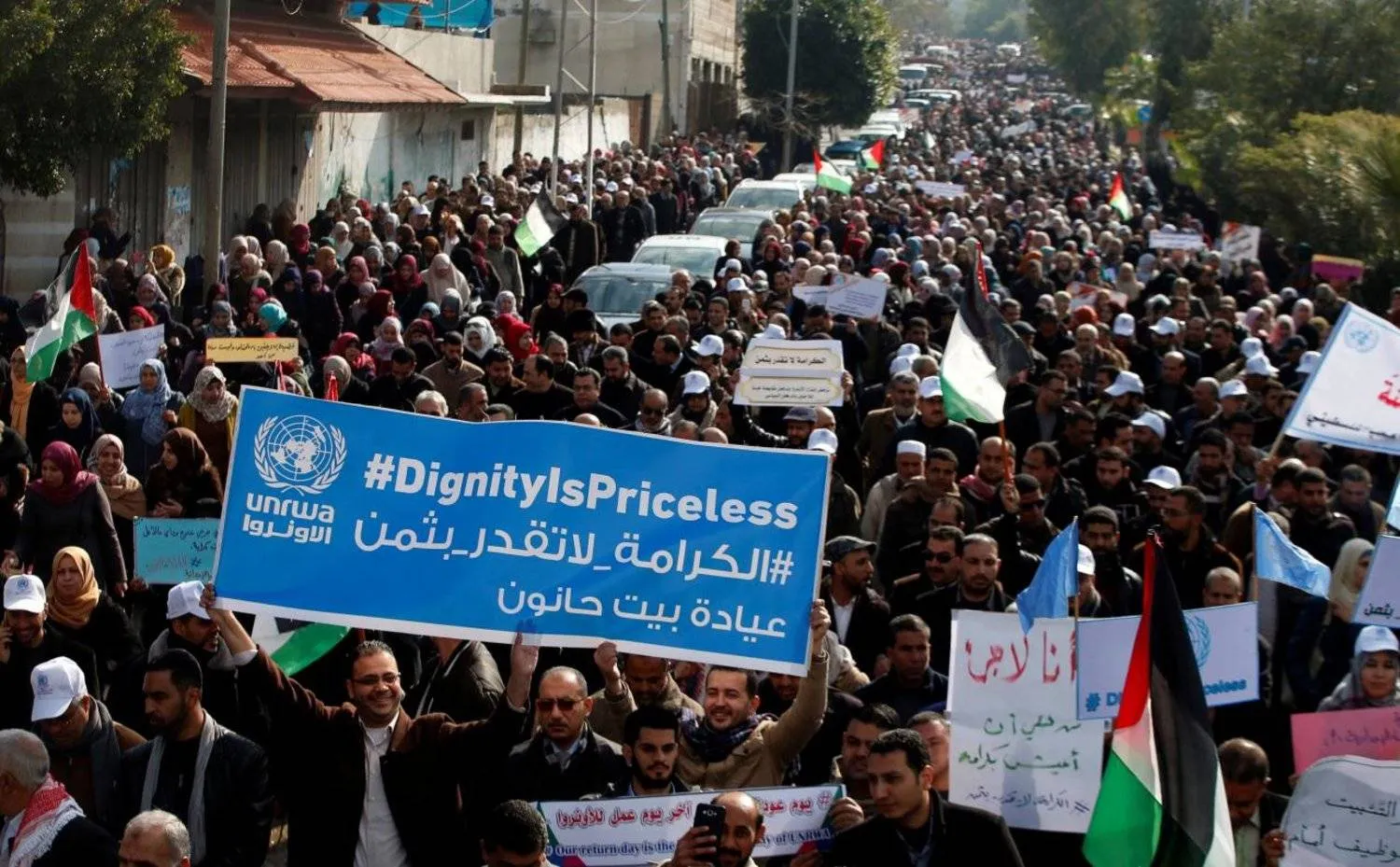Israel vowed Saturday to stop the UN humanitarian aid agency in Gaza from operating after the war, and called for its chief to resign, after the sacking of staff accused of involvement in the October 7 attack.
Israeli Foreign Minister Israel Katz called on UNRWA Commissioner-General Philippe Lazzarini to quit his post.
"Mr Lazzarini please resign," Katz said on social media platform X late on Saturday in response to a post by the UNRWA chief warning that funding cuts meant the agency's operation in Gaza was about to collapse.
Katz had said in an earlier statement that the UNRWA "must be replaced with agencies dedicated to genuine peace and development" in Gaza's rebuilding, AFP reported.
Hamas slammed Israeli "threats" against UNRWA on Saturday, urging the United Nations and other international organizations not to "cave in to the threats and blackmail".
Relations between Israel and UNRWA have been strained for years but deteriorated in recent days, with the UN body condemning tank shelling it said had hit a shelter for displaced people in Gaza's main southern city of Khan Yunis.
The agency said tens of thousands of displaced people had been registered at the shelter and Wednesday's tank shelling killed 13 people.
The Israeli military said "a thorough review of the operations of the forces in the vicinity is underway", adding it was examining the possibility that the strike was a "result of Hamas fire".
Lazzarini slammed Wednesday's bombardment as a "blatant disregard of basic rules of war", with the compound clearly marked as a UN facility and its coordinates shared with Israeli authorities.
The Israeli army is the only force known to have tanks operating in the Gaza Strip.
UNRWA struggled to meet funding requirements before the fighting broke out.
Its chronic budget shortfalls worsened dramatically in 2018 when former US president Donald Trump cut funding.
But US President Joe Biden's administration fully restored support, providing $340 million in 2022, making it the agency's largest bilateral donor.
The US State Department said Friday it had "temporarily paused additional funding" while it reviewed the claims about UNRWA staff.
Several key donor countries said Saturday they would halt funding. Lazzarini responded that it was "shocking to see a suspension of funds to the agency in reaction to allegations against a small group of staff".
Top EU diplomat Josep Borrell praised the agency Friday for "playing a vital role over many years supporting vulnerable Palestinian refugees".
But he said the bloc expected "full transparency", as well as "immediate measures against staff involved".
The Palestinian Authority, based in the occupied West Bank, urged donors to reverse their suspension, calling on Saturday for "maximum support".
Johann Soufi, a lawyer and former director of UNRWA's legal office in Gaza, told AFP the agency had "always had a zero-tolerance policy for violence and incitement to hatred".
"Sanctioning UNRWA, which is barely keeping the entire population of Gaza alive, for the alleged responsibility of a few employees, is tantamount to collectively punishing the Gazan population, which is living in catastrophic humanitarian conditions," he said.
Soufi said the timing of the allegations against UNRWA "raises questions".









